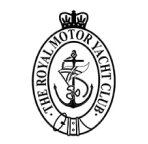Strategic Hot Water Isolation – Hotel in Poole
Location: Poole, Dorset
Industry: Hospitality / Hotel
Background
Asbury Heating was called out to a hotel in Poole where an existing hot water isolation valve had failed. This issue prevented the hotel’s maintenance team from isolating parts of the hot water system for routine servicing and essential shower valve replacements in two guest rooms. Without a reliable isolation method, even small maintenance tasks would require a complete shutdown of the hotel’s hot water supply – an impractical solution in a live hospitality environment.
The hotel’s plantroom included a complex setup:
- 3x hot water calorifiers
- 2x heating boilers
- Cold main boost pumps
Scope of Work
The hotel needed to replace shower valves in two individual rooms. To enable this without disrupting service to the entire building, Asbury Heating supplied and installed new lever isolation valves – both at the main system level and within the rooms themselves.
Our team:
- Installed 2 x 54mm lever valves on the primary distribution pipework
- Fitted 2 x 22mm lever valves inside the guest rooms, allowing localised control for future maintenance
Challenges and Solutions
One of the primary challenges was the tight four-hour working window imposed by the hotel to minimise guest impact. The job also required a temporary full shutdown of all services, so meticulous planning and precise execution were critical.
Our engineer:
- Assessed the system layout during an initial site visit
- Identified the best isolation points to limit the disruption footprint
- Safely drained the system in key areas to allow valve installations
- Completed the work well within the allocated time window
Results
- The installation of new isolation valves now enables maintenance to be carried out in specific rooms without full system shutdown
- Improved operational flexibility for the hotel’s in-house maintenance team
- The solution is maintenance-friendly, reducing downtime and disruption for guests
Timeline
- 1 week from initial assessment to final installation
- All work completed within a 4-hour access window as requested by the hotel
Cost Analysis
While a relatively modest project in terms of cost, the long-term operational benefits are significant. The ability to avoid future whole-building shutdowns translates to lower labour costs, reduced guest inconvenience, and improved scheduling flexibility.
Safety and Compliance
- All work was conducted in pairs and in accordance with hotel safety protocols
- Some work required working at height, with appropriate measures in place
- All installations met industry standards and best practices for pipework and valve integration

Lessons Learned
This project highlighted the importance of:
- Regular valve maintenance and testing to prevent future failure
- Clear communication between engineers and on-site maintenance teams to plan time-sensitive works effectively
These learnings will be applied to future work in similar hospitality environments, where operational uptime is critical.
Conclusion
This project showcases Asbury Heating’s ability to work under pressure, delivering precision-engineered solutions in live environments. Thanks to clear planning, efficient execution, and technical know-how, the hotel now has greater control over its system and future maintenance will be quicker, simpler, and far less disruptive.
Asbury Heating – delivering smart, time-sensitive solutions with a professional, dependable team.













